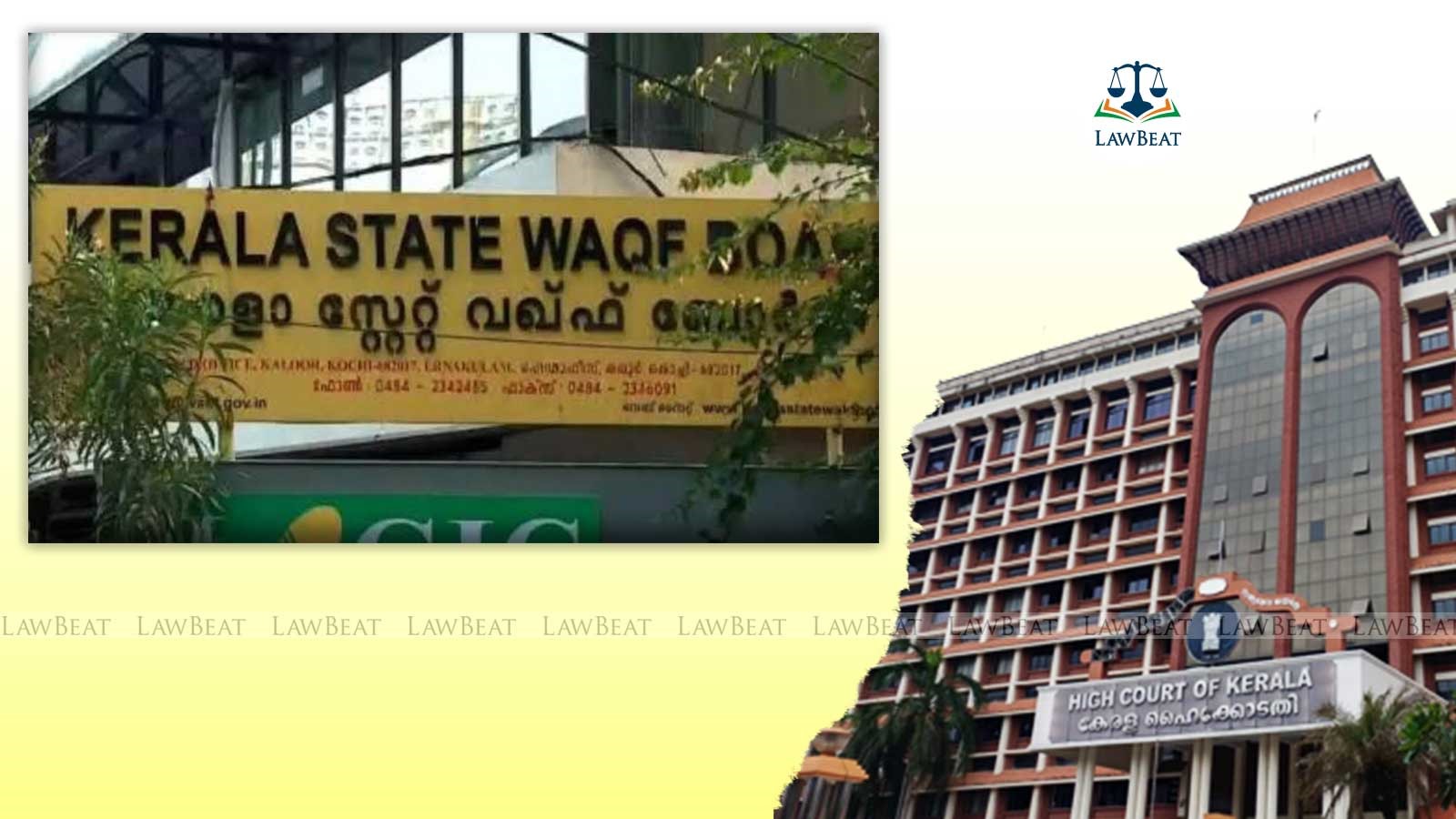Kerala HC Dismisses Wakf Board’s Plea Filed Against Dead Person After 14 years to Claim His Property

The court rejected the wakf board’s claim finding no merit in it and noting that the petitioner’s ownership claims were valid and well-supported by legal documentation
The Kerala High Court has dismissed a revision petition filed by the Kerala State Wakf Board against a deceased person after 14 years in an attempt to claim his property. The court, presided over by a Division bench comprising Justice Amit Rawal and Justice Easwaran S., were hearing a plea challenging a 2007 order by the Wakf Tribunal, Ernakulam, which had ruled in favour of the plaintiffs.
The primary issue before the Court was whether the Wakf Board could pursue a claim for property ownership when the revision petition was filed against a person who had already passed away, and no steps were taken to rectify this despite multiple court directions. Additionally, the Court examined whether there were justifiable grounds to condone the delay of 647 days in filing the revision petition.
The dispute involved land located in Ponnayurkulam Village, comprising three separate plots. The property was initially leased by Muhammed Unni to Raman Menon, who later transferred his tenancy rights to Rama Panicker. Kannappan, the plaintiffs' predecessor, had been residing on the property as a kudikidappukaranan, an occupant with permanent rights of occupancy under the Kerala Land Reforms Act, 1963. After Kannappan's death, his rights passed to his son, Kuruppunni, and subsequently to the plaintiffs. Over the years, the plaintiffs legally acquired ownership over parts of the disputed property through purchases and were issued certificates of purchase by the Land Tribunal. However, the second defendant, a descendant of one Chekkutty, filed a complaint alleging that a part of the property had been dedicated as Wakf property by Chekkutty. Acting on this complaint, the Wakf Board ordered the eviction of the plaintiffs. The plaintiffs challenged the Wakf Board's order, resulting in a directive from the High Court to file a suit before the Wakf Tribunal.
The Wakf Tribunal concluded that the plaintiffs had established legitimate ownership over the disputed property, tracing their rights to their predecessor Kannappan, who had been a resident with ownership rights. The plaintiffs legally purchased portions of the land and held certificates from the Land Tribunal confirming this. The Tribunal found no evidence to support the Wakf Board's claim that the property was Wakf land.
The High Court pointed out several “glaring defects” in the Wakf Board's actions, including the fact that the revision petition was filed against a person who had passed away. Despite multiple orders from the court to rectify this by impleading legal heirs, the Wakf Board did not take any action. “the Board was callous in their approach and has not taken steps to effect notice on the legal representatives of the deceased 2nd Respondent,” the court stated.
The court emphasised that the plaintiffs had independently established their title to the property based on its entrustment to their predecessor, Kannappan, as a kudikidappukaran. Following Kannappan's death, his rights devolved to his son, Karuppunni, who obtained a purchase certificate under Section 72 of the Land Reforms Act, affirming his title. It was further stated that significance of the plaintiffs later purchasing the property from Rama Panicker, who had leasehold rights, was minimal.
The court also highlighted that the Wakf Board had failed to take any concrete steps to rectify the abatement of the case since 2010. The court clarified that it has, by a separate order, dismissed the application seeking condonation of delay, finding that “no satisfactory explanation was caused to condone the delay in filing the application for setting aside the abatement.”
On a cumulative assessment of the entire facts as stated above, we are of the considered view that no sufficient ground has been made out for this Court to condone the delay of 647 days in filing the revision petition and hence the application for condonation of delay is liable to be dismissed. Consequently, the Revision Petition is also liable to be dismissed,” the court further noted.
In dismissing the revision petition, the High Court stated, “the Tribunal rightly entertained the suit and decreed the same” Furthermore, the court found that there was no evidence to classify the disputed properties as Wakf properties, stating that “we find that there is no merit in the revision petition.”
Consequently, the court concluded that the Wakf Board lacked authority to entertain the complaint, affirming that the Tribunal correctly accepted the suit and ruled in favour of the plaintiffs.
Cause Title: Kerala State Wakf Board v Dharmapalan and Others [CRP NO. 599 OF 2009]
